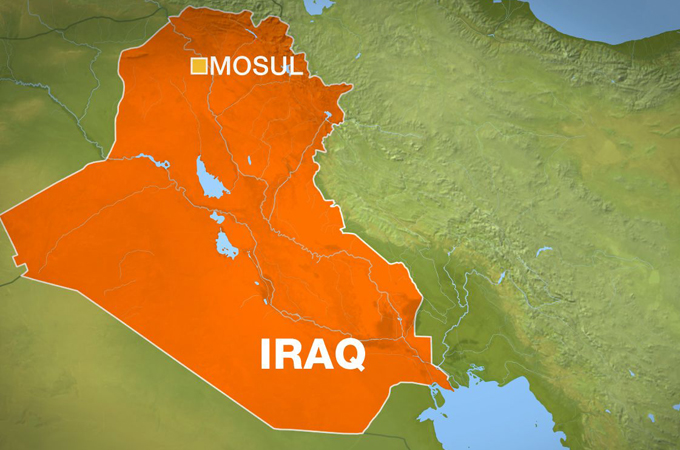Iraq probe implicates Maliki over Mosul’s fall to ISIL
Parliamentary report finds former PM and 35 officials responsible for army’s loss of city and says they should be tried.

An Iraqi parliamentary committee says that former prime minister Nouri al-Maliki and other officials were to blame for allowing the Islamic State of Iraq and the Levant (ISIL) to overrun Mosul last year, and has called for them to face trial.
The committee, which presented the conclusion of its investigation to parliament speaker Salim al-Juburi on Sunday, implicated 36 officials in the loss of the country’s second city, sources in Juburi’s office told Al Jazeera.
Keep reading
list of 4 itemsWill 2018 be a year of change in Iraq?
Iraq’s parliament pushes back against PM over reforms
What’s behind Abbadi’s visit to Tehran?
”No
”]
While various top commanders and political leaders have long been blamed for ISIL’s takeover of the capital of Nineveh province, the investigative committee’s report is the first time they have been named officially.
The source said that Maliki’s naming came after the committee heard numerous testimonies of military commanders who said that the former prime minister had ordered the withdrawal of troops from military bases in Mosul.
Maliki was prime minister from 2006 until last year when he became vice president, that position was abolished last week as part of reforms by the current prime minister.
The inclusion of his name was a source of controversy on the committee, with his Dawa party pushing for it to be left out.
‘No one above the law’
Various former senior officials were also named in the report detailing the committee’s findings, which has not been publicly released.
An MP on the committee said the officials include defence minister Saadun al-Dulaimi, army chief of staff Babaker Zebari, his deputy Aboud Qanbar, ground forces commander Ali Ghaidan, Nineveh operations command chief Mahdi al-Gharawi and the province’s governor, Atheel al-Nujaifi.
Juburi said the findings will be sent to the prosecutor general for legal action.
“No one is above the law and the questioning of the people, and the judiciary will punish those [responsible],” Juburi said in a statement.
 |
|
ISIL launched an offensive on June 9 last year, overrunning Mosul the next day |
ISIL launched an offensive on June 9 last year, overrunning Mosul the next day and then sweeping through large areas north and west of Baghdad.
Multiple Iraqi divisions collapsed during the initial assault in the north, in some cases abandoning weapons and other equipment which ISIL then used to further their drive.
Maliki is widely viewed as having exacerbated sectarian tensions between the country’s Shia majority and its Sunni minority.
Widespread discontent among Sunnis, who say they were marginalised and targeted by Maliki’s government, played a major role in aggravating the security situation in Iraq, aiding the ISIL advances.
Maliki is also accused of appointing commanders based on personal loyalty rather than competence.
Courts-martial over Ramadi
Earlier on Sunday, Prime Minister Haider al-Abadi’s office announced that he had cleared the way for the military prosecution of senior commanders responsible for another military collapse in Ramadi, a city west of Baghdad.

ISIL seized Ramadi, the capital of Anbar province, in May, after government forces had held out against the fighters there for more than a year.
Abadi approved the “decisions of the investigative commission on the withdrawal of the Anbar operations command and units attached to it from the city of Ramadi,” his office said in a statement.
Al Jazeera’s Mohammed Jamjoom, reporting from Baghdad, said the statement said that all military officials with the rank of officer or above, who left their Ramadi posts without permission, will be court-martialed.
“What is not clear is when those courts-martial will happen, or if any of those members of the military have already [faced proceedings],” he said.
Abadi previously said that forces in Ramadi “had to resist, and if they had resisted, we would not have lost Ramadi”.